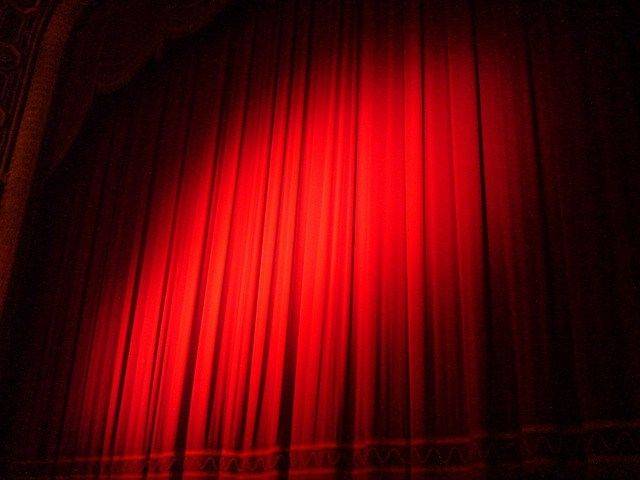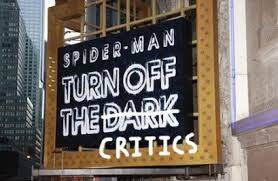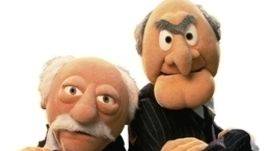
It’s possible that you read Smile Politely for its coverage of the local theatre scene, which includes numerous theatre reviews. If so, it’s possible that you’ve read reviews that I wrote about local community theatre productions, including Parkland College Theatre’s Spamalot and the Station Theatre’s The Clean House and Other Desert Cities. I did my best, as a new member of Smile Politely and relative newcomer to theatre criticism to speak truthfully to what I saw.
It’s safe to say that some people were not pleased. Now, to be fair, there are a lot of talented people in the Champaign-Urbana theatre community. And many of these performers (and directors and designers) work hard at their craft and strive to be taken seriously as artists. Despite this, there is often backlash when local theatre productions are taken to task. Is the role of the local theatre critic to simply summarize the plot and thank everyone for their time?
Some negative feedback from my previous reviews fueled my consideration of the idea: Is there space within community theatre for criticism? The shows are nonprofessional, their budgets are low, and some if not most of the actors are minimally trained. How could I insert my opinion? Especially if it isn’t beaming. It is fundamentally an opportunity to engage and access the theatrical experience. Community theatre relishes the process; the unpaid devotion to the art is overwhelmingly admirable. The presentation is a celebration with friends and family.
But what happens if the show is bad? If the design is heavy-handed? If the acting is cringe-worthy? Should this be pointed out? Should someone speak up, and will anyone beyond the cast and director care?
Too often community-level shows go unnoticed due to preconceived notions verging on stigma around this kind of theatre: a makeshift, patchwork, DIY effort. How does it get better? How can improvements be made and visions challenged?
[Enter The Critic, stage left.]
 As a critic, it is not my intention to attack any actor or any production or any theatre company. My assigned responsibility is to assess the production in the most objective, informed way I can. Now, a ton of factors feed into the act of criticism: how the day was going earlier; how previous writing was handled; knowledge and experience with the playwright, with the director, with the company, with any of the actors, the show itself, etc. Making the review as much of a reflection on the performance as on life leading up to this moment.
As a critic, it is not my intention to attack any actor or any production or any theatre company. My assigned responsibility is to assess the production in the most objective, informed way I can. Now, a ton of factors feed into the act of criticism: how the day was going earlier; how previous writing was handled; knowledge and experience with the playwright, with the director, with the company, with any of the actors, the show itself, etc. Making the review as much of a reflection on the performance as on life leading up to this moment.
To enter the theatre space with the intention of being completely objective is foolish; impression structure exists. This is the impression the audience has of this show in the moment, based on their past experiences that brought them to this point. Impression structure includes marketing, personal experience, and word of mouth, to name a few facets. A critic is no exception to this system. But they offer to input the art with a thoughtful lens and output conclusions about the show, within their own impression structure.
 The beauty of community theatre is largely in the process. The design process. The collaboration process. The rehearsal process. This is when members indulge in their talents and passions. The performances are the celebratory culmination of hard work, presented to others. This is the vulnerability in art; opening it to others and to criticism. Theatre is interpretation. Members of the process interpret. The audience interprets. The critic interprets, and is only one perception in the room. You need an audience for theatre, an honest audience. This is how growth occurs, outside of the comfort zone. If no voice exists that challenges what is, it will remain the same.
The beauty of community theatre is largely in the process. The design process. The collaboration process. The rehearsal process. This is when members indulge in their talents and passions. The performances are the celebratory culmination of hard work, presented to others. This is the vulnerability in art; opening it to others and to criticism. Theatre is interpretation. Members of the process interpret. The audience interprets. The critic interprets, and is only one perception in the room. You need an audience for theatre, an honest audience. This is how growth occurs, outside of the comfort zone. If no voice exists that challenges what is, it will remain the same.
This is the critic’s role in community theatre: to celebrate with the process and players, but also to push them to be better, to challenge them to consider their process differently, and to offer an honest opinion.
It is not with malicious intent I review, but with hopes of growing in my own understanding of the theatrical art form and in developing my own aesthetic. I strive to articulate both the components I enjoy and those which didn’t appeal to me. Everyone is a critic, I just speak a little louder from this electronic soapbox. Space needs to exist for critics so that innovation is sparked and growth occurs within the community theatre.








